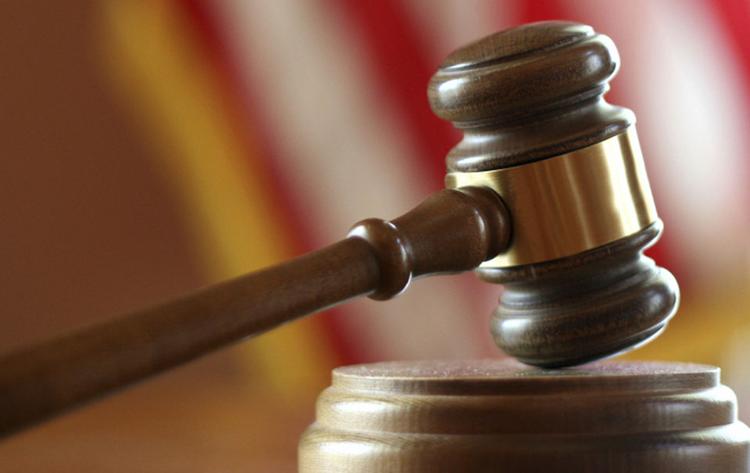The Connecticut Supreme Court’s reversal of a lower court’s ruling on police immunity when stopping moving vehicles may spur changes in New Haven police policy.
On Oct. 15, the Connecticut Supreme Court ruled against governmental immunity for New Haven police officer Nikki Curry. Curry had created a roadblock with her police cruiser — to stop drag-racing dirt bikers on Howard Avenue in the Hill neighborhood — causing a biker, plaintiff Amaadi Cole, to collide with a tree and suffer a serious injury. The most recent decision overturned a lower court ruling in favor of Curry, the defendant. That judge had found that Curry “exercised her discretion in responding to a situation that could pose a threat to others.”
The ruling marks the end of the seven-year case. Cole first filed a claim for damages against Curry in July 2013. In the operative complaint, the plaintiff claimed that Curry pulled her police cruiser directly into an oncoming traffic lane and created a roadblock, causing the biker to swerve and strike a tree. In the collision, Cole claimed, he suffered various skull fractures, “cognitive deficits,” permanent facial scarring and a near total loss of vision. Court decisions for the case have centered around the question of whether Curry had violated ministerial duty — the duty of a police officer to abide by existing protocol when a public officer “has no room for the exercise of discretion” — in reference to police department procedures and dirt bike ordinances.
“We agree with the plaintiffs and conclude that the trial court improperly granted the defendants’ motion for summary judgment because the plaintiff has established the existence of a ministerial duty under the applicable city and state policies,” Chief Justice Richard Robinson said in the majority opinion.
Arguments for the plaintiff held that Curry violated her duty to public safety by pulling her cruiser into the lane that the plaintiff was traveling on, recklessly endangering the bikers that did not exhibit threat of harm to others.
Cole said in court that “Curry was either chasing the plaintiff or driving into the lane of traffic of the bikes. Either action violated a clear directive.”
According to New Haven Police Sergeant Carlos Maldonado, who offered expert testimony for the case, NHPD protocol does not allow for officers to stop oncoming off-road vehicles by moving their car into the opposing lane of traffic. Protocol also prohibits officers from setting a roadblock, or stationary object, in such lanes. Officer training, he said, reflects this protocol. The only exception to this, Maldonado said, is for officer pursuit of “serious” felonies.
Connecticut General Statutes Sec. 14-283a states that roadblocks are prohibited unless officers obtain authorization from a supervisor and are needed to apply “deadly physical force” to end a pursuit. Curry did not present evidence that she sought supervisory approval.
The defendant attempted to oppose the plaintiff’s arguments by saying that Maldonado is not Curry’s immediate supervisor.
In light of Strycharz v. Cady, in which the Court established ministerial duty in a school setting, the Court found that Maldonado qualified, by rank and experience, to be Curry’s direct supervisor, even though he was not specifically placed in the position. This renders the testimony relevant to establish ministerial duty, favoring the plaintiff.
In the end, the Connecticut Supreme Court decided to reverse the ruling on the grounds that Curry’s decision to pull the cruiser into a roadblock position went against city and state pursuit policies. They also found that Curry’s decision to activate her lights and sirens also indicated to the bikers that they were being pursued, which is also prohibited under NHPD policy.
How to address drag racing has remained a pertinent issue among city leaders and law enforcement officials. Earlier this month, the New Haven Police Department proposed legislation that included a $2,000 fine on riding dirt bikes, ATVs or other illegal motorized vehicles on New Haven streets, with the possibility for vehicle seizures. This ruling may bolster support for imposing fines on drag racers to prevent such accidents. The recent decision has signaled city efforts to disincentivize pursuits or roadblocks through financial penalties.
Still, some have seen the fine as one that may disproportionately affect communities of color in New Haven. In a Board of Alders meeting, Westville Alder Richard Furlow raised concerns about unclear wording in a clause within the legislation that a dirt biker could only challenge the seizure of vehicles to an office within the police department.
“I don’t think the chief of police is the right one to hear any kind of grievance,” Furlow said in the meeting.
All six judges concurred on the majority opinion delivered by Robinson in the 6-0 ruling.
Make sure you have subscribed to our Facebook page or Twitter to stay tuned!
Source: Yale News
